| He is not a typical portrait and fashion photographer. Based in the south of England Tony Hammond made his way along band photography. We found a message of Tony on our Instagram, took a look at his photos and asked him for an interview. He agreed. So here we are and you have the opportunity to learn more about this interesting photographer and to take a look at some of his photos. |
Tony, please tell us a little about yourself to begin with. (How old are you, where were you born and where do you live now, what is your profession and do you have other besides photography?)
I am 38, and live in vibrant Brighton, UK where I have lived for about 15 years. I was born in London, but moved away to Horsham (a town halfway between London and Brighton) when I was less than a year old, which is where I grew up. I wish photography was my job, but it isn't, at the moment it is more of a hobby, but do now dabble a little in the professional side of things occasionally. My day job is in stock planning and control.
I am 38, and live in vibrant Brighton, UK where I have lived for about 15 years. I was born in London, but moved away to Horsham (a town halfway between London and Brighton) when I was less than a year old, which is where I grew up. I wish photography was my job, but it isn't, at the moment it is more of a hobby, but do now dabble a little in the professional side of things occasionally. My day job is in stock planning and control.
Have you been involved in the arts in some form other than photography?
I'm not really involved in the arts in another way other than photography. In my college days I did briefly sing in a band, and played a bit of bass guitar, but I guess it wasn't really my thing. Photography has in recent years kept me involved in music to a degree photographing bands and gigs (on and off for various people and reasons), and more recently got me involved in the performance arts having helped some actors with head shots, and also getting involved with burlesque performers and shows.
Seeing your remarkable work, I am curious where your creativity comes from?
Actually I find this a very difficult question to answer. The truth is I'm not really sure. I think it must just come from years of flicking through magazines such as NME and the now non existent Melody Maker for band inspiration, but also men's and women's lifestyle magazines. I think having lived and worked in Brighton for years now will have had a big impact on my outlook too. The city is awash with creative people of all art forms and you see great examples all over the place from the graffiti, to street sculpture, to street performance, to pop up galleries. It's everywhere in all forms, and I think this influence has rubbed off on me.
| Could you share with us how you first became interested in photography? My uncle had a Pentax ME Super with a few lenses (28mm wide, 50mm standard, and 70-210 zoom from what I remember) which I used to borrow/play with when I was entering my teenage years. I think I just used to enjoy using this, and when I was at college did a photography course and used this camera for it, at which point I think he handed it down to me as I used it a lot more than he did. Back then, I used to like playing with the depth of field of a photograph. In terms of the modelling photography I do now, just under two years ago, a friend of mine asked me if I'd help her with a shoot, so I did. I didn't really know what I was doing, and wasn't particularly happy with the results I managed to get, but did enjoy the day. I wanted to improve on this and manage to get the results I wanted, so it spiralled from there. |
What equipment are you using now and with what did you get started? What is your favourite lens?
So as per the previous question, I started out with my uncle's Pentax ME Super, but I also played around with a very old Praktica MTL3 which I picked up in a charity shop and experimented with a few screw on lenses. I did stick with the Pentax as I preferred this camera for real every day usage, and then when I moved on to digital got an entry level Pentax K200D. I went with Pentax for a couple of reasons, I liked their design and feel, you seem to get a lot of camera (features) for the money, and I could use the old lenses I already had. Occasionally I still go out with the film camera, but now I'm using predominantly a Pentax K5, which I bought about 6 years ago, as I wanted a little more professional body and better low light ability. I have several lenses, my favourites of which are the Pentax DA* 50-135 f2.8, and the Pentax FA 43mm f1.9 Limited. Both are perfect for portraits as they render image colours and bokeh beautifully. I've only acquired both these lenses in the last year, but they're great. The 43mm is so small to carry about and an old film era lens, but the smoothness of the image is lovely.
So as per the previous question, I started out with my uncle's Pentax ME Super, but I also played around with a very old Praktica MTL3 which I picked up in a charity shop and experimented with a few screw on lenses. I did stick with the Pentax as I preferred this camera for real every day usage, and then when I moved on to digital got an entry level Pentax K200D. I went with Pentax for a couple of reasons, I liked their design and feel, you seem to get a lot of camera (features) for the money, and I could use the old lenses I already had. Occasionally I still go out with the film camera, but now I'm using predominantly a Pentax K5, which I bought about 6 years ago, as I wanted a little more professional body and better low light ability. I have several lenses, my favourites of which are the Pentax DA* 50-135 f2.8, and the Pentax FA 43mm f1.9 Limited. Both are perfect for portraits as they render image colours and bokeh beautifully. I've only acquired both these lenses in the last year, but they're great. The 43mm is so small to carry about and an old film era lens, but the smoothness of the image is lovely.
Can you tell us about your work flow from the point you first step on to the street until you showcase the developed picture?
This is something that varies wildly from shoot to shoot. It is not unusual for me to have no real plan when going out for a street shoot. If this is the case I'll likely have camera, a couple of lenses and a speedlight in case it's needed. Then walk around and pick areas to shoot off the cuff. This can work well and can help give a nice candid feel to the work. However, I do usually prefer to have a small plan in place of the type of thing we're looking for, and in these instances location and end image goal has already been discussed. We'll go to the location, set up shot (which may now include off camera lighting depending on required shot), and take several until we feel we have captured the right shot of look and pose. Then it's post production which for me is usually reasonably light. Unless there is a specific effect I need to achieve, I'm not really going to be using Photoshop much. Most of my work flow is produced through Lightroom, and is good, but fairly basic adjustments to lighting, contrast, clarity and colour balance. I like a more natural look to the models, so I don't edit the “lumps and bumps”, but try to get flattering poses rather than worry about this after. I'm a believer in showing the model as they are.
| Do you see a particular influence, be it a photographer or school on your work? Any subject that attracts you? I like shooting portraits and hopefully trying to capture a bit of the personality of the model, whether I always achieve this is subjective, but I believe when input is from all parties involved in a shoot, then the personality can really show through. I also like the alternative, so whether that be the location or concept, or models themselves (I find myself working a lot with pierced and tattooed models). I generally take influence from looking at other people's photos generally, and wouldn't be able to pinpoint any particular source. I do tend to pay more attention to what my local photographers are shooting (possibly as I have access to the locations) and often take influence from them. Recently I've been very impressed by the work of a couple of local photographers (Sarah Olivier and Susan Grace Hinman), and as a result have ideas in my head now influenced by them. |
What would you say characterizes your work in comparison to other photographers?
I think I take a very relaxed approach to what I am doing. Although I tend to try to work quite quickly through an idea before moving on to the next, I'll very much be involving the model and allowing equal influence from both sides. I work to a principle that there is no pressure from either side, and mutually we reach a point where we know we've got the shot we require. I've been told that I tend to work towards darker and maybe more contrasty end images than I see a lot of other people do. I'm not sure why and it may not be to everybody's taste, but I'm told it makes my images stand out a little in the crowd.
I think I take a very relaxed approach to what I am doing. Although I tend to try to work quite quickly through an idea before moving on to the next, I'll very much be involving the model and allowing equal influence from both sides. I work to a principle that there is no pressure from either side, and mutually we reach a point where we know we've got the shot we require. I've been told that I tend to work towards darker and maybe more contrasty end images than I see a lot of other people do. I'm not sure why and it may not be to everybody's taste, but I'm told it makes my images stand out a little in the crowd.
| Among your works, which is your favourite and why? I did a shoot with model Kristaps Neilands towards the end of last year. He told me he wanted to do a shot with cigarette smoke. So we found a location and took the shot. This one shot completely divided opinion, I loved it, and a lot of other people did too, but it was love or hate with this shot. There were many reasons why people didn't like it, for many, it was the inclusion of smoking that they didn't like, or the fact that the eyes were covered by smoke. However, this still remains my favourite model shot, and pleases me it caused a little controversy, although this wasn't it's intention. |
Tell us your funniest or most awkward photography story.
This has to be from my first beach shoot. Happily shooting away, and then from out of nowhere I saw a man in a canoe appear in my viewfinder. A bit of conversation followed, he was complimentary and polite, enquired as to the reason for the photographs, where they were going to be published and the like, had his photo taken with the model, but then didn't go anywhere for a while, not sure what he was waiting for, but we had to move our to remove him from the shots.
What would you tell a newcomer who asks for your advice on how to start?
Begin light, don't worry about lots of equipment, camera and a couple of lenses will be fine. Get to grips with the basic principles of photography possibly from a course or from self teaching. Try to go out and do a few practice shoots with friends or family. After this, just put yourself out there and network – social media is a great way to get started, join local photography/model groups, don't be pushy, but don't be afraid to ask people on these groups if they'd help you out with shoots (be prepared to pay a model to get someone with good experience as they often know what looks best with the lighting – either natural or studio – and will be prepared to give you advice on this). Try to take part in a locally organised group shoot – this is a fantastic way to network with other local photographers and models of all experience levels. Look out for photography workshops in the field you're interested in. Look out for courses (although some tend to be theory based which personally never worked too well for me). Ultimately keep going, don't let yourself be put off if things haven't worked out as you intended, treat every shoot as a learning curve, and every shoot will improve your skill and confidence.
This has to be from my first beach shoot. Happily shooting away, and then from out of nowhere I saw a man in a canoe appear in my viewfinder. A bit of conversation followed, he was complimentary and polite, enquired as to the reason for the photographs, where they were going to be published and the like, had his photo taken with the model, but then didn't go anywhere for a while, not sure what he was waiting for, but we had to move our to remove him from the shots.
What would you tell a newcomer who asks for your advice on how to start?
Begin light, don't worry about lots of equipment, camera and a couple of lenses will be fine. Get to grips with the basic principles of photography possibly from a course or from self teaching. Try to go out and do a few practice shoots with friends or family. After this, just put yourself out there and network – social media is a great way to get started, join local photography/model groups, don't be pushy, but don't be afraid to ask people on these groups if they'd help you out with shoots (be prepared to pay a model to get someone with good experience as they often know what looks best with the lighting – either natural or studio – and will be prepared to give you advice on this). Try to take part in a locally organised group shoot – this is a fantastic way to network with other local photographers and models of all experience levels. Look out for photography workshops in the field you're interested in. Look out for courses (although some tend to be theory based which personally never worked too well for me). Ultimately keep going, don't let yourself be put off if things haven't worked out as you intended, treat every shoot as a learning curve, and every shoot will improve your skill and confidence.

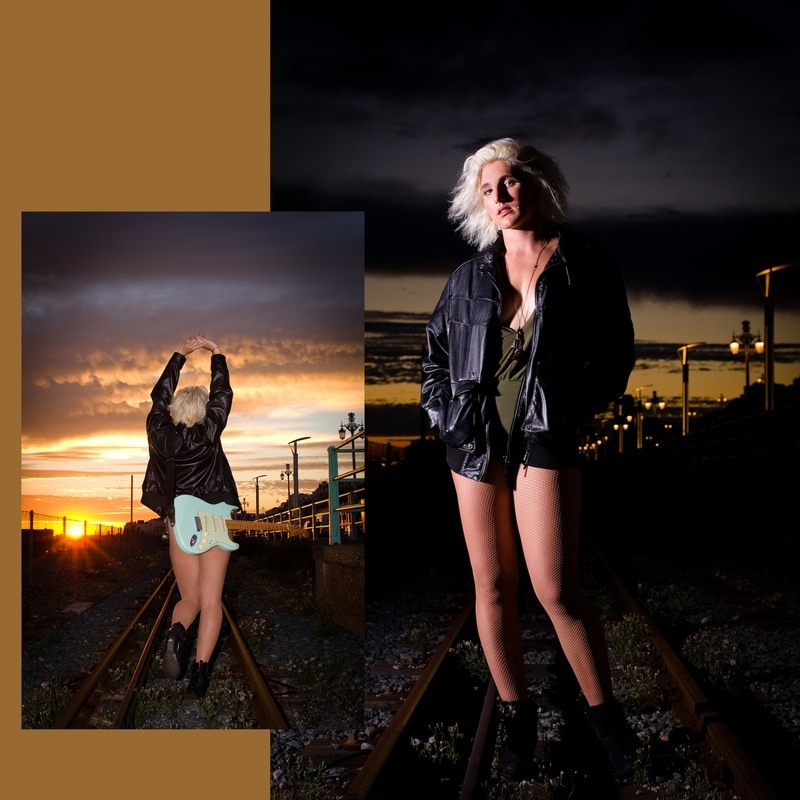
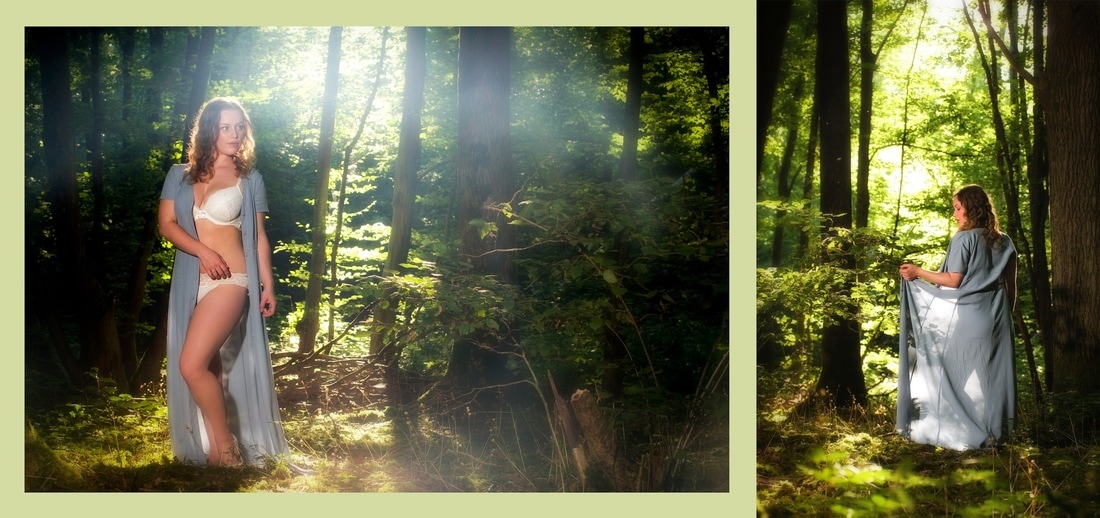
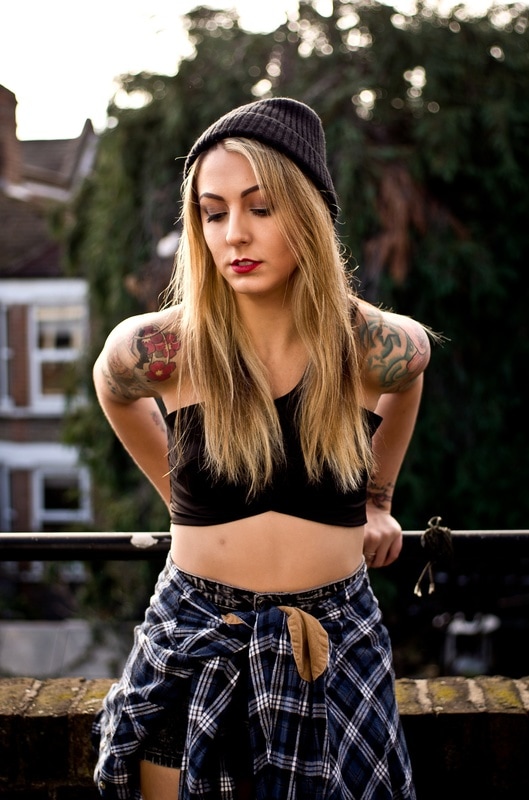
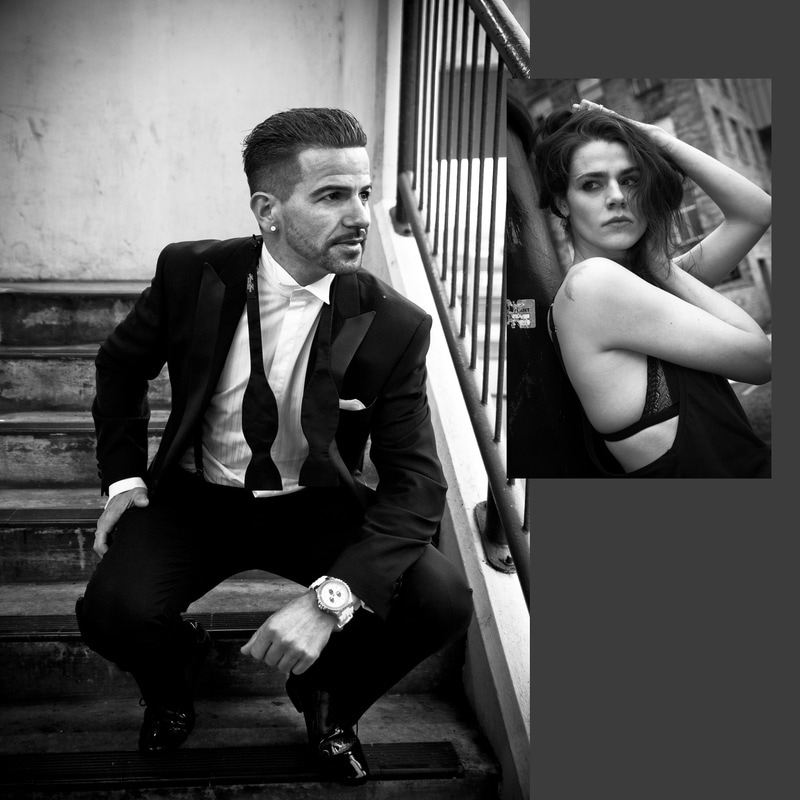
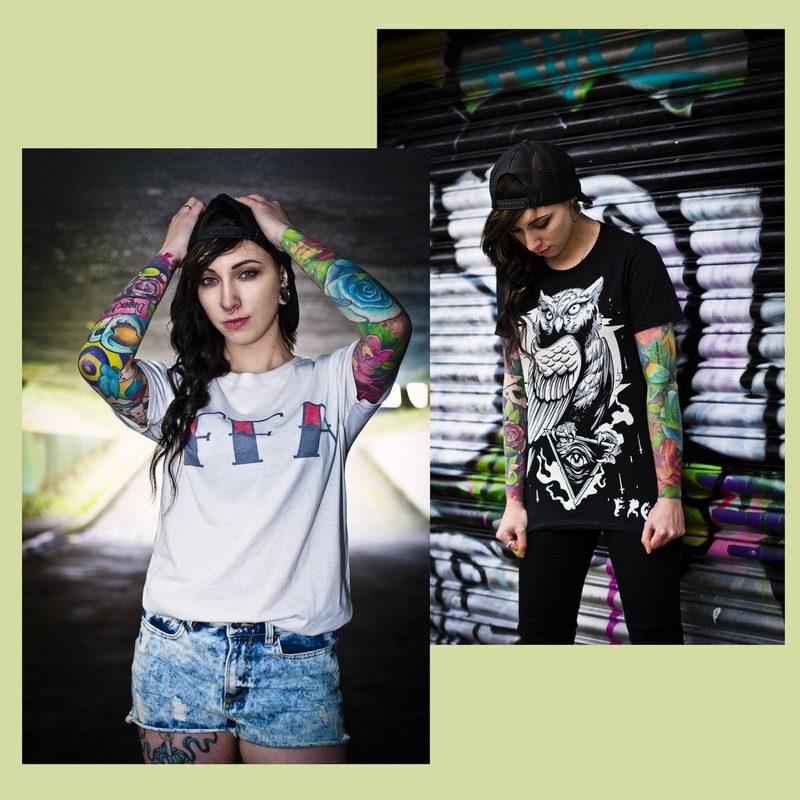
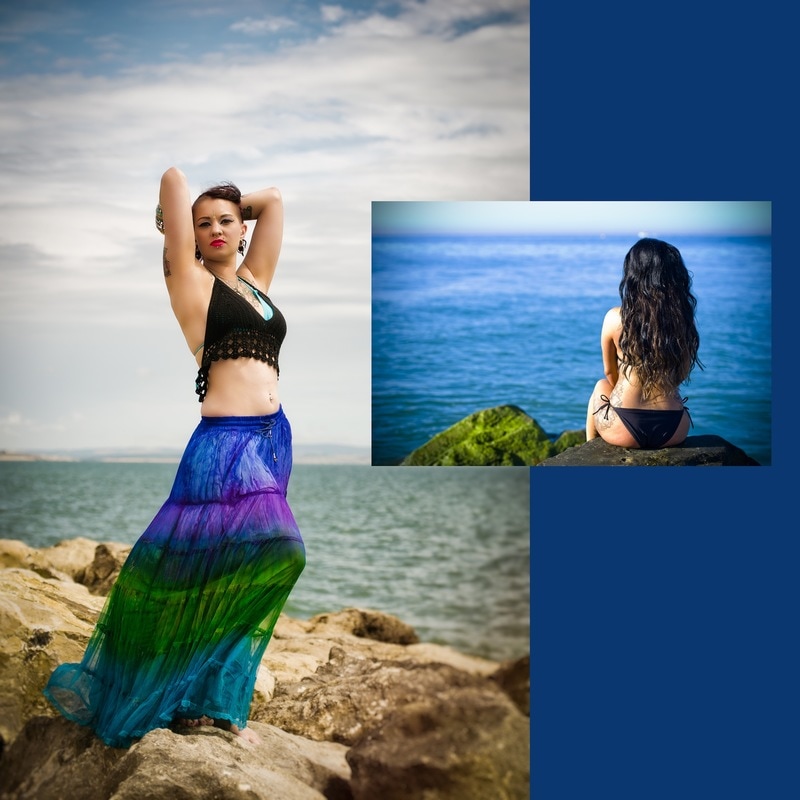
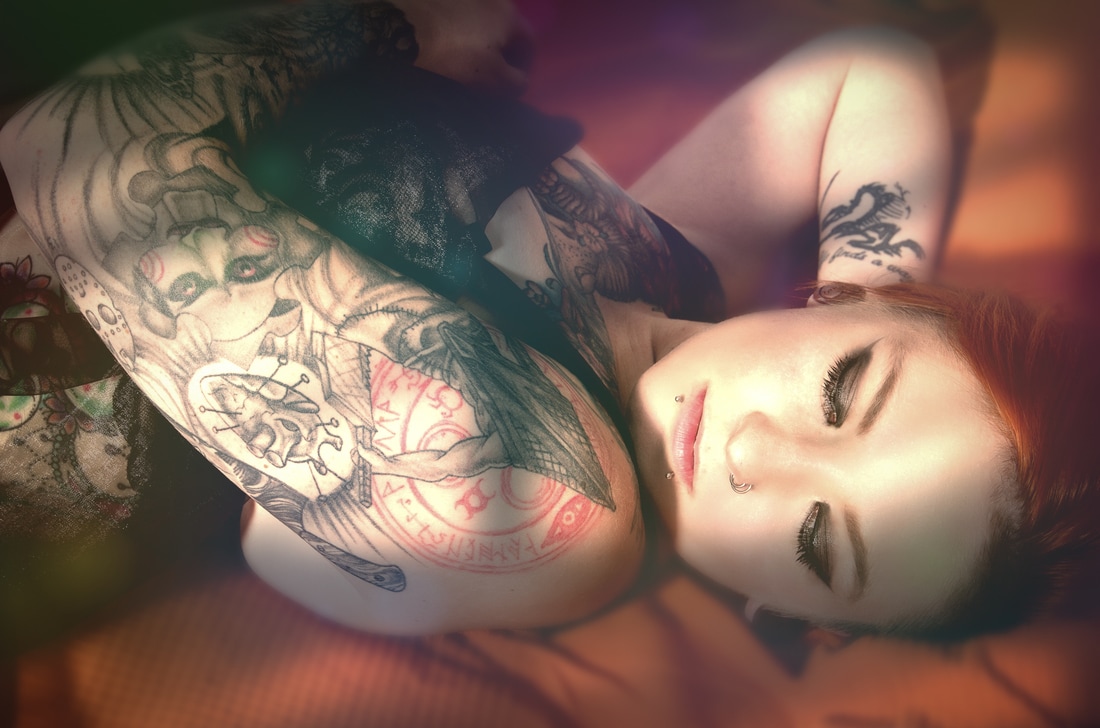
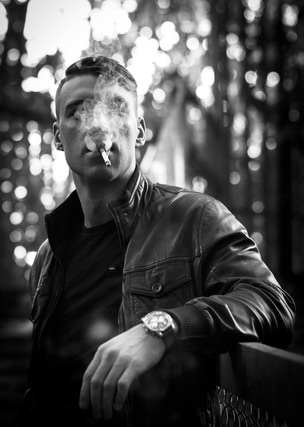
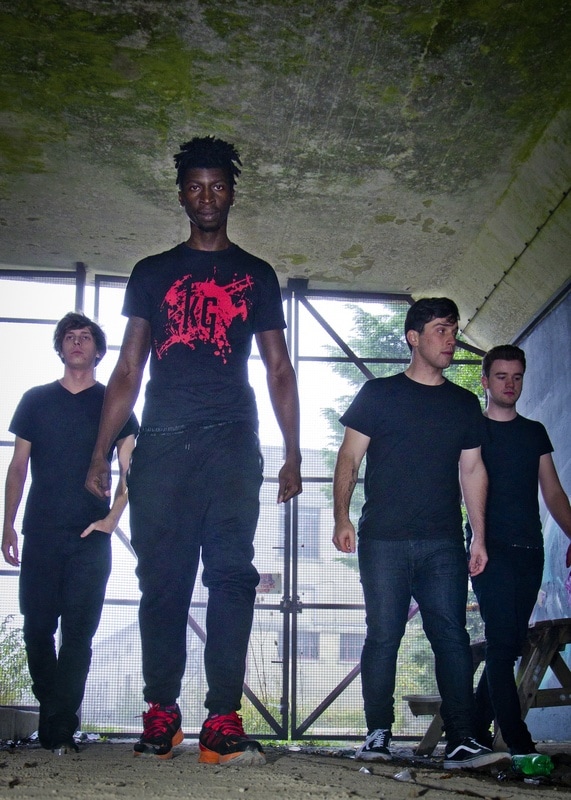
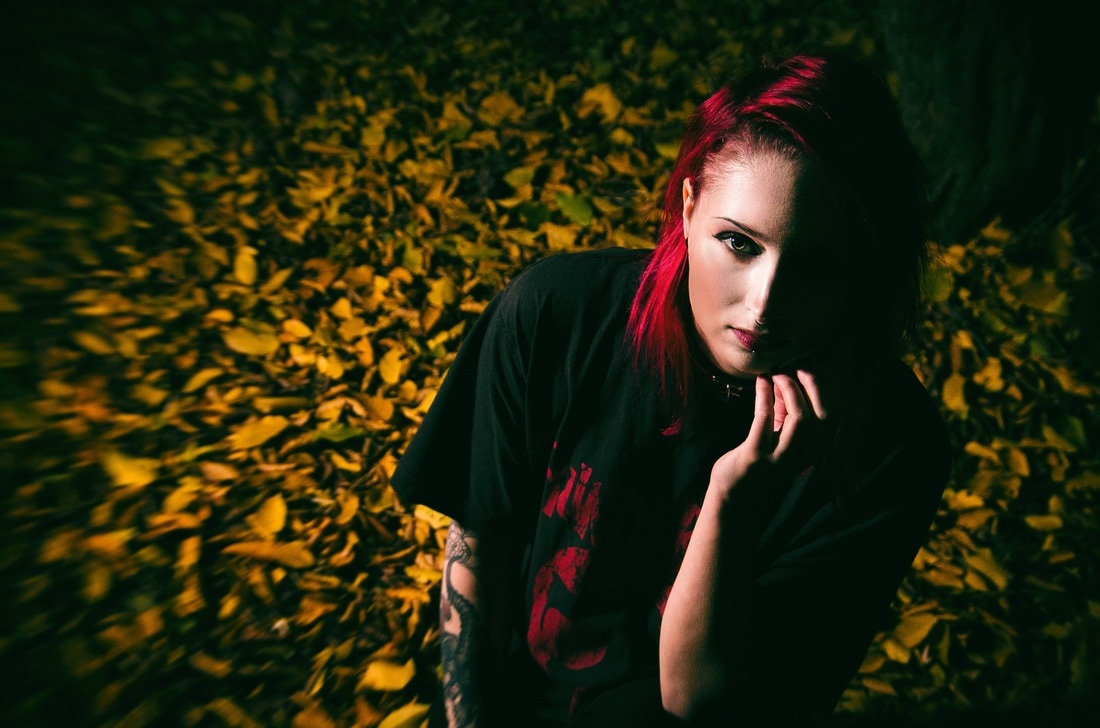
 RSS Feed
RSS Feed